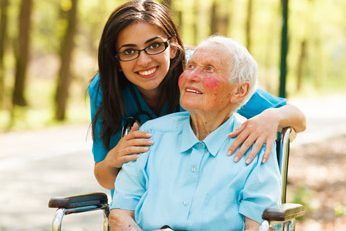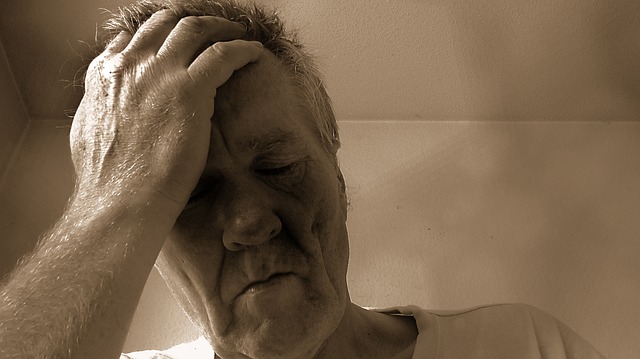
Have You Winterized Your Home? A Checklist for Seniors
When the wintry weather starts turning frightful, seniors should take extra precaution in preparing their home for those often challenging winter months. Like most things in life, just a bit of preparation can go a long way in ensuring a safe and healthy winter season filled with holiday spirit and family rather than trips to the emergency room or days spent in bed. Here are a few tips that seniors can use to prepare their homes for even the longest and coldest winters.
Make Items Accessible for Emergencies
Depending on location, winter can prove to be challenging for utility companies tasked with providing people consistent and reliable services. Every year, the news features stories of communities, cities or sometimes even entire regions left without power for days or weeks at a time due to severe winter weather.
For that reason, seniors should assume they might be left without electricity at some point during the winter. Leaving certain items accessible during those months can make trying times much easier to deal with.
For instance, be certain to leave extra blankets accessible for additional warmth. Rather than storing them in a box in the garage or in a linen closet, a convenient but out-of-the-way location somewhere within the house makes those blankets easy to get to, but not to the point where they’re constantly getting in the way.
Likewise, items like flashlights, matches, a small but complete first aid kit, and a manual can opener can save a lot of time and headaches if the power were to go out and seniors temporarily lose access to items reliant on electricity to operate. Once again, these items don’t need to be sitting on the dining room table all winter long but should certainly be placed in areas that make them readily accessible.
Of course, depending on location, winter can also involve deep snowdrifts and frozen roads that make just the simple idea of leaving the house a monumental task in of itself. To that point, stockpiling extra drinking water as well as canned and dry food means minimizing the risk of going hungry or thirsty if the elements prevent anyone from venturing outside to a supermarket.
Although applicable to everyone but seniors in particular, keeping extra medications around — both over-the-counter and prescription if possible — minimizes the ability for bad winter weather to have dire health consequences. Even if medications are delivered directly to the home, keeping a safety buffer available for the cold winter months is always a good idea.
Also, keeping a consistent temperature inside the home is important for frigid nights where temperatures can drop dangerously low for everyone, the young and old in particular. Try to keep the home consistently above 68° F, even in the daytime when people tend to be more active and perhaps don’t feel the cold temperatures as much. Waiting to heat a home until it falls below 68° means the furnace has to work harder to catch up. Call an HVAC company to check on the heating system before temperatures start rapidly dropping to make sure everything is in good working order. If area heaters are used throughout the home, be certain to have fire extinguishers on the ready.
Prepare the Exterior of Your Home
It’s important seniors prepare their home to stay safe in winter. Once again, the preparation for the outside of a house varies significantly by location. While most seniors in California or in the desert don’t have to worry about keeping rock salt and a snow shovel handy for the winter, many of the seniors elsewhere in the country should absolutely make sure they have them on hand, preferably just outside the front door where it’s close to the front pathway but still not a nuisance.
As for the walkways themselves, make sure they are well-lit and maintained as best as possible to prevent excessive icing or snow accumulation. Of course, given the strenuous nature of salting a pathway or shoveling snow, seniors should plan ahead and make arrangements to have the services performed for them. Keeping absorbent and durable floor mats both inside and outside of the front door allows people walking into the home to minimize water being tracked throughout the house.
Preferably before the season’s first snow, call a roofing professional to make certain the roof can handle a heavy accumulation of snow and rain gutters won’t struggle with melting runoff. All entry points into the home, including windows and each exterior door, should be checked to make sure they are functioning properly and seal correctly. Replacing weatherstripping is much easier to do in the fall before temperatures start dropping.
Keep a List Handy for All Contacts
Of course, no matter how much preparation is done for the winter months, life still has a way of throwing unforeseen curveballs. When something comes up, whether small and incidental like a leaky faucet or drastic and potentially dangerous like a broken furnace, having a list with the names and phone numbers of anyone that might be needed throughout the winter can save valuable time, effort and possibly even health, including the following:
- Family and friends
- Neighbors
- Doctor’s office
- Pharmacy
- Roofing repair
- HVAC repair
- Pathway and driveway plowing
- Local utilities
- Heating oil provider if applicable
- Mechanic
Lastly, remaining diligent in the winter months might just be a senior’s best defense against unforeseen health issues. Keep feet, hands and head warm, and immediately call a doctor if any loss of sensation is experienced. Hypothermia is a very real threat when temperatures start to drop. The winter should be a time for family and friends, not weather-related emergencies. Keep safe, healthy and enjoy the season.






